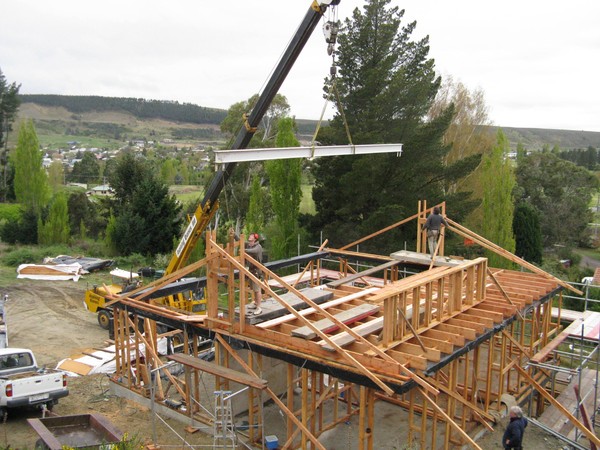Social Housing Minister Amy Adams announced that the construction of 100 new homes on land in Mt Albert, which was previously intended for roading, has got underway today.
She said the New North Road development is part of the Government’s new Crown Building Project and that 50% of the houses in it will be priced in the affordable range for Auckland.
The Crown Building Project will replace 8,300 old, rundown houses in Auckland with 34,000 brand new, purpose-built dwellings and, to this end, will utilise land in suburbs around Auckland.
Of the new dwellings, 13,500 will be for social housing.
A further 20,600 will be affordable and market houses – but Adams has said there will be strict limits on who can buy the affordable dwellings and how long they can hold them.
According to sources, Mt Roskill, Papakura, New Lynn and Glen Innes will be the suburbs to see the most building while South Auckland suburbs like Mangere and Manurewa will see an increase in state houses.
However, apparently, there won’t be any developments on the scale of those currently underway in Tamaki and Hobsonville.
Those developments involve thousands of new houses but the newer developments are set to comprise of around 40 to 100 dwellings.
The project is the government’s latest effort to address Auckland’s housing issues and, given the city’s dwelling shortfall of approximately 40,000, the new building is desperately needed.
But while the funding and the commitment might be there on the part of the government, questions are being asked about the logistical feasibility of the project.
Property Institute chief executive Ashley Church said it was difficult to see how the scale of building required could be delivered without bringing in many more tradespeople.
This was due to existing capacity constraints in the construction industry which is already struggling to keep up with the level of building taking place in the private sector.
“Any building programme, whether it be this one or the Labour Party’s KiwiBuild programme which has a goal of 100,000 new dwellings nationwide, is going to put more pressure on an already stretched sector.”
The only solution to the capacity issue will be to bring in more tradespeople and that means keeping up the immigration flow, he said.
“That in turn places additional pressure on Auckland housing, at least in the short term, and also raises issues around immigration which is already controversial.”
On top of this, there is the eternal question of infrastructure capacity and development, particularly as Auckland’s infrastructure networks – most notably transport – are already struggling.
Infrastructure New Zealand chief executive Stephen Selwood said a step change in infrastructure funding and investment will be required to ensure Auckland can accommodate the planned growth.
Auckland’s infrastructure networks cannot accommodate this development by continuing business as usual, he said.
"A 34,500 home development is a city of 100,000 people – that’s somewhere between a Palmerston North and a Dunedin.
“A vast service network underpins this much housing: Palmerston North City alone has over 550km of roads, 1,000km of water pipes and 30 schools.”
Selwood said that while the Government has signalled it will be making an $11 billion commitment to infrastructure in Budget 2017, it is not clear how the Auckland Council will meet its growth obligations.
"The city really is at a critical juncture. Infrastructure is urgently needed to address the backlog and accommodate new growth.”
"It’s great to see the Government enabling housing development at scale but parallel development of infrastructure to support all of the new houses will be key to success.”
But he said there were ways to address the infrastructure challenge.
These include prioritising housing development next to train and busway stations; streamlining planning consents for power, water, telecommunications and social infrastructure; and expanding private investment in infrastructure through PPPs and large scale development opportunities
Read more:
Super City to get 34,000 new houses
Fears over building industry capacity
Address Auckland infrastructure issues




 Search
Search
